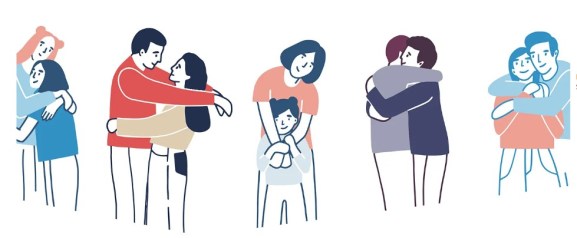Things to do when offering an apology
POONAM MAYANI
Things to do when offering an apology
POONAM MAYANI

In today’s society, offering an apology has become an increasingly common occurrence.
Whether it’s in response to a personal conflict, a professional mistake, or a public controversy, knowing how to apologize effectively is a valuable skill.
However, simply saying “I’m sorry” is not always enough. Here are some things to consider when offering an apology.
- Take responsibility. A sincere apology requires acknowledging that you were in the wrong. Be specific about what you did and why it was wrong. Avoid blaming others or making excuses.
- Express remorse. Show that you understand the impact of your actions and that you are genuinely sorry for any harm caused. This means being empathetic and using language that conveys your feelings of regret and sadness.
- Offer a solution. If appropriate, suggest ways to make amends or fix the situation. This could involve offering to help in some way or committing to specific actions that will prevent the same mistake from happening again.
- Listen actively. Be open to hearing the other person’s perspective and understanding their feelings. This means putting aside defensiveness and taking the time to really listen and empathize.
- Avoid repeating the same mistake. It’s important to follow through on any commitments you make and to take steps to ensure that the same mistake doesn’t happen again in the future.
By following these guidelines, you can offer an apology that is sincere, effective, and respectful of the other person’s feelings. Remember that a good apology is not just about words, but also about actions.
By taking responsibility, showing remorse, offering solutions, listening actively, and avoiding repeating the same mistake, you can demonstrate that you value the relationship and are committed to making things right.
Apologies are a ubiquitous part of human interaction, from the personal to the professional to the political. But is an apology always necessary? Is it always appropriate or effective?
On the one hand, apologies can serve an important function in repairing relationships and acknowledging wrongdoing. They can demonstrate empathy and remorse, and can be a powerful tool for healing and reconciliation.
In some cases, a sincere apology can even be transformative, leading to forgiveness, understanding, and growth.

However, there are also situations where an apology may not be necessary or appropriate. For example, if there is a misunderstanding or miscommunication rather than a clear act of wrongdoing, a simple clarification or explanation may suffice. In some cases, an apology may even be counterproductive, stirring up negative emotions and prolonging a conflict.

Furthermore, apologies can sometimes be insincere or performative, done more to save face or appease others than to genuinely acknowledge harm and take responsibility. In these cases, an apology can actually do more harm than good, further damaging trust and creating cynicism.
So, is an apology always necessary?
The answer is not a simple one. Apologies can be a powerful tool for healing and reconciliation, but they should not be used as a one-size-fits-all solution. Rather, the decision to apologize should be made on a case-by-case basis, taking into account the nature of the offense, the needs and feelings of the other person, and the potential impact of an apology.
In addition to repairing relationships, apologies can also be a powerful tool for building trust and promoting reconciliation. When someone apologizes, they are demonstrating their willingness to take responsibility for their actions and to make amends for any harm caused. This can help to rebuild trust and create a sense of mutual respect and understanding.

Apologies can also be a way of promoting healing and growth, both for the person who has been harmed and for the person who has caused harm. By acknowledging one’s mistakes and committing to change, an apology can be a first step towards personal and collective transformation. This can lead to a deeper sense of self-awareness, empathy, and compassion, and can create opportunities for learning, growth, and forgiveness.
Ultimately, the most important thing is not the apology itself, but the sincerity and intention behind it. A genuine apology, offered with empathy and a commitment to change, can be a powerful tool for healing and growth.
But a shallow or insincere apology, offered simply to save face or avoid conflict, can do more harm than good. Apologies are a crucial part of human interaction, promoting healing, growth, trust, and respect.
While apologies may not always be easy or comfortable, they are an essential part of maintaining healthy relationships and building a more compassionate and ethical society.
[Poonam Mayani is from Pune]
Images from different sources
Mahabahu.com is an Online Magazine with collection of premium Assamese and English articles and posts with cultural base and modern thinking. You can send your articles to editor@mahabahu.com / editor@mahabahoo.com ( For Assamese article, Unicode font is necessary)





















